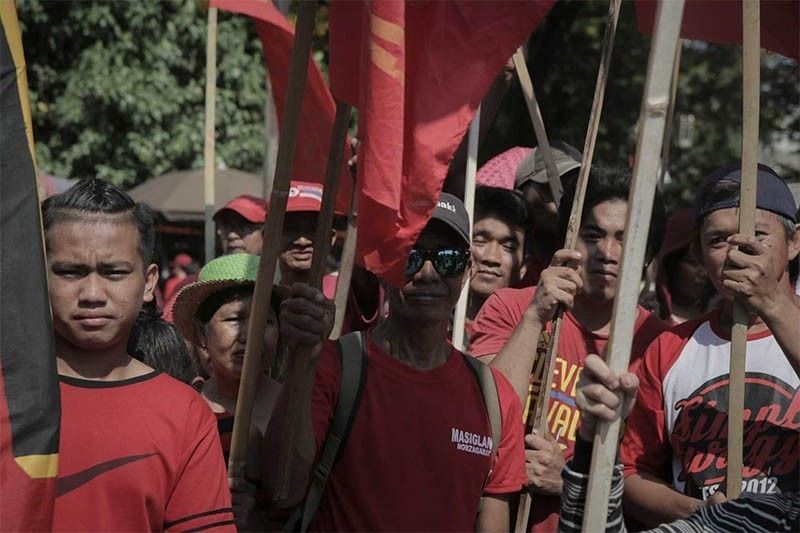Foreign ownership of public services will intensify exploitation of Filipino workers — labor group

MANILA, Philippines — Labor group Defend Jobs Philippines slammed the House of Representatives' approval of a measure allowing foreigners ownership over local public utilities including telecommunication and transportation, saying these would only worsen the existing struggles of ordinary workers.
Now on its way to the third and final reading at the lower chamber of Congress, House Bill No. 78 seeks to delineate the terms public service and public utility, which fall under the restriction on foreign ownership in the 1987 Constitution.
Deputy Speaker Sharon Garin (
“This legislative reform will significantly contribute to increasing competition,
As it stands, Chapter 2 of the Public Service Law includes under "public service":
any common carrier, railroad, street railway, traction railway, sub-way motor vehicle, either for freight or passenger, or both with or without fixed route and whether may be its classification, freight or carrier service of any class, express service, steamboat or steamship line,
pontines , ferries, andwater craft , engaged in the transportation of passengers or freight or both, shipyard, marine railways, marine repair shop, [warehouse] wharf or dock, ice plant, ice-refrigeration plant, canal, irrigation system, gas, electric light, heat and power water supply and power, petroleum, sewerage system, wire or wireless communications system, wire or wireless broadcasting stations and other similar public services
However, House Bill No. 78 defines public service to cover:
“common carrier, railroad, street railway, subway motor vehicle, ice refrigeration plant, irrigation system, marine railways, wire or wireless communications systems; wire or wireless broadcasting stations; freight or
carrier services, steam boats ferries and war craft engaged in the transportation of passengers or freight, gas, electric light, heat and power water supply and power, petroleum and sewerage system, among others.”
“Something is
“Contrary to the alibi of our legislators that letting foreigners and foreign direct investments will help improve the deplorable state of our country’s public services, we stand firm that only by nationalizing and through government’s direct control to our own vital strategic industries and services can we attain genuine upliftment and can we truly strengthen the country’s services for our own people,” said Defend Jobs Philippines spokesperson Thadeus
The labor group pointed out that “aside from the issues of HB78’s constitutionality questions, concerns on the violations on our national sovereignty and foreign control on Philippine assets and economy, the said proposed bill in the House of Representatives will intensify exploitation and the long-drawn violations of workers’ rights in the public service sector.”
Defend Jobs Philippines said they foresaw
- Cheaper wages
- Docile labor and slashed benefits in favor or profits
- More difficult set-up for workers in terms of the level of bargaining
- Labor
flexibilization schemes - Job security issues, among many other concerns
In December 2019, an earlier unnumbered iteration of the measure also sought to allow for expanded foreign ownership of land and businesses, including public utilities, educational institutions and mass media.
Rep. Rufus Rodriguez (Cagayan de Oro), who chairs the House committee on constitutional amendments, said, "It aims to lift the limitations on foreign investments in public utilities and the development in natural resources
Article XII, Section 11 of the 1987 Constitution reads:
Section 11. No franchise, certificate, or any other form of authorization for the operation of a public utility shall
be granted except to citizens of the Philippines orto corporations or associations organized under the laws of the Philippines, at least sixty per centum of whose capitalis owned by such citizens; nor shall such franchise, certificate, or authorization be exclusivein character or for a longer period than fifty years.Neither shall any such franchise or right be granted except under the condition that it shall be subject to amendment, alteration, or repeal by the Congress when the common good so requires. The State shall encourage equity participation in public utilities by thegeneral public.The participation of foreign investors in the governing body of any public utility enterprise shall be limited to their proportionate share in its capital, and all the executive and managing officers of such corporation or association must be citizens of the Philippines.
“
- Latest
- Trending



























